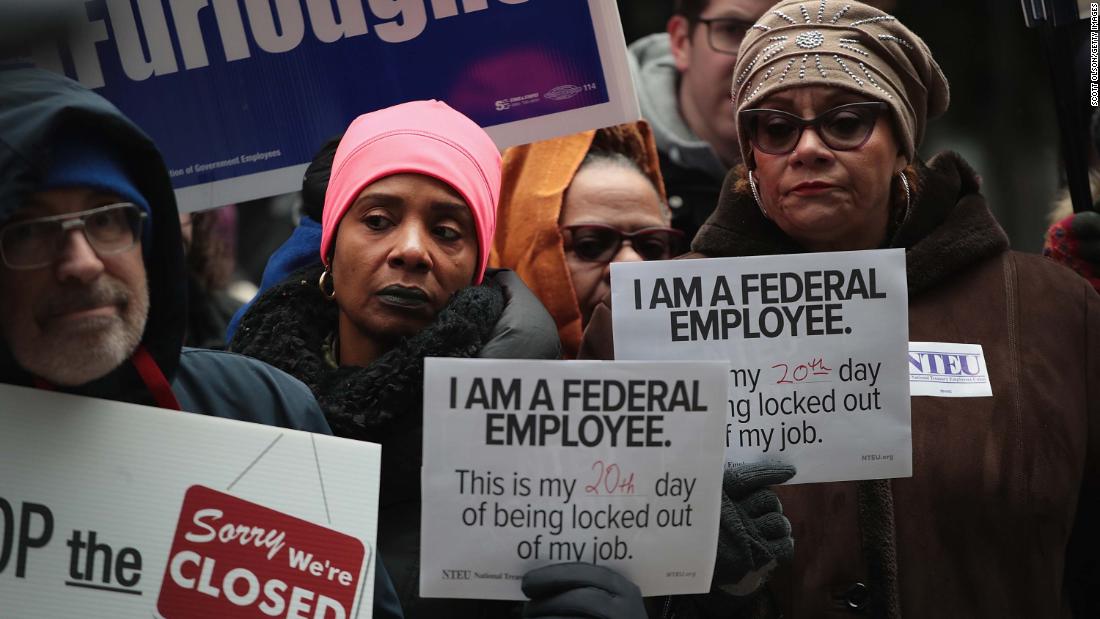
The Bureau of Labor Statistics said this week that the 800,000 federal workers that were furloughed or asked to work without pay through January 25 will count as employed in the establishment survey, which generates the headline payrolls number.
The 380,000 employees who were furloughed — those who didn't work and weren't paid during the shutdown — will be counted as unemployed in the household survey, which is used to calculate the unemployment rate.
Initial claims for unemployment reached a 49-year low in late January, indicating that few of the approximately 4 million workers that depend federal contracts lost their jobs. The most recently weekly jobless claims, however, surged to their highest level since September 2017.
But the impact on federal contractors isn't clear, and may not be represented in the January figures.
Economists polled by Refinitiv estimate that employers added 165,000 jobs last month — a drop from the average of 220,000 jobs per month over the past year. They expect the unemployment rate to hold steady at 3.9%.
The underlying labor market appears strong.
Economists forecast that wages will grow by 3.2% and extend a three-month streak above 3% growth.
Minimum wage increases went into effect in 20 states in January which likely pushed up the average. The National Federation of Independent Business' December survey indicated that a near-record share of firms plan to boost salaries in the first quarter.
But after the Federal Reserve indicated Wednesday that it would hold off on interest rate hikes for the first half of the year, that solid growth isn't guaranteed for much longer.
Measures of consumer and business sentiment have been sagging in recent months, both because of political and stock market turmoil as well as concerns that new tariffs could continue to raise prices and disrupt supply chains. Another big jump in tariffs on Chinese imports due to go into effect on March 1.
Dan North, chief economist with the insurance company Euler Hermes, says that trade uncertainty has replaced labor shortages as business' largest concern, likely constraining activity in future months.
"I think that some hiring is going to be put on hold for a while," North says. "Let's just sit for a few minutes, just like the Fed is doing now. We don't have to be in a hurry to do anything."
The jobs report will be the most important piece of economic data to arrive in weeks, because the Census Department and Bureau of Economic Analysis were closed through the shutdown.
Scheduled releases of gross domestic product for the first quarter, residential home sales, and other indicators have been delayed.
Bagikan Berita Ini














0 Response to "Solid jobs report expected for January despite shutdown"
Post a Comment